Complex Systems
Complex systems are ubiquitous. We find complex behavior manifesting in natural phenomena (physical, chemical, biological, climate etc.) and in human designed engineering systems (communication systems, language models, artificial intelligent agents). The charter of the NIAS Complex Systems (NCS) Programme is to undertake the systematic analysis & study of such complex systems with the aim of characterizing their dynamics, mathematical modeling of complex phenomena to understand, explain and interpret them, and to design novel computational methods and algorithms to predict and control.
Examples of complex systems include (but not limited to) -- (a) Human heart and brain, (b) Communication systems, (c) Artificial Intelligent agents, (d) Social networks, (e) Climate/weather systems, (f) Language models, (g) Earth system, (h) Economic systems, (i) Quantum systems etc. Complex systems are governed by principles which have both deterministic and stochastic components. For example, a weather system is modeled by non-linear deterministic differential equations with a stochastic noise component. A deep understanding of complex systems involves a multi-disciplinary study spanning several domains such as mathematical modeling, non-linear dynamics & chaos, computational & numerical methods, data-driven analysis including the use of artificial intelligence (machine learning, deep learning, reinforcement learning, transformers, foundational models etc.), optimization techniques, information theory, statistics and causal reasoning.
Activities as part of the NIAS Complex Systems Programme (NCS) are organized under the following themes:
1. Nonlinear Dynamics, Chaos & Information Theory and its Applications
2. Learning in Complex Systems (Artificial Intelligence, Brain-Inspired Machine Learning)
3. Climate & Weather Modeling
4. Language Modeling
5. Causal Reasoning in Complex Systems
6. Doctoral study, Academic Courses, Collaborations and Outreach Activities

Doctoral Student

Doctoral Student

Adjunct Faculty
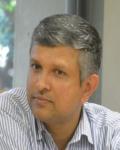
Professor and Head, NIAS Complex Systems Programme
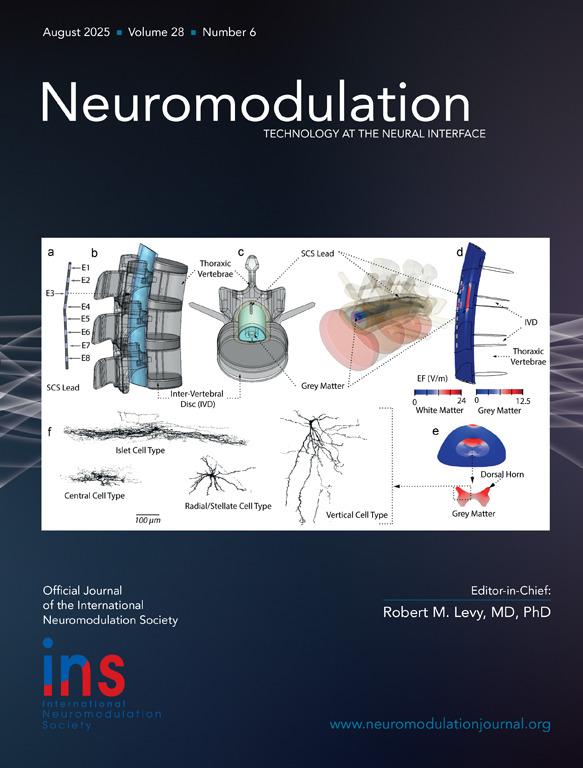
|
Nithin Nagaraj Personalized Theta Transcranial Alternating Current Stimulation and Gamma Transcranial Alternating Current Stimulation Bring Differential Neuromodulatory Effects on the Resting Electroencephalogram: Characterizing the Temporal, Spatial, and Spectral Dimen https://www.neuromodulationjournal.org/article/S1094-7159(24)00673-1/abstract Venugopal, R., Sasidharan, A., Bhowmick, K., Nagaraj, N., Udupa, K., John, J. P., & Kutty, B. M. (2025). Personalized theta transcranial alternating current stimulation and ... Neuromodulation: Technology at the Neural Interface, 28(3), 425-433. |
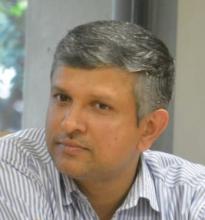
|
Nithin Nagaraj DiffusionScore: A Framework for Assessing Institutional Research Impact Through Influence Diffusion https://ieeexplore.ieee.org/document/11062458 Sampatrao, G. S., Khetan, A., Nagaraj, N., Saha, S., Dey, S. R., & Mathur, A. (2025). DiffusionScore: A Framework for Assessing Institutional Research Impact Through Influence Diffusion. IEEE Access. |

|
Nithin Nagaraj Neurochaos Learning for Classification using Composition of Chaotic Maps https://dergipark.org.tr/en/pub/chaos/issue/91901/1601947 Henry, A., & Nagaraj, N. (2025). Neurochaos learning for classification using composition of chaotic maps. Chaos Theory and Applications, 7(2), 107-116. |
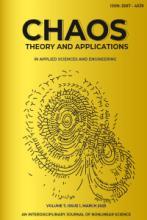
|
Nithin Nagaraj A Chaos-Causality Approach to Principled Pruning of Dense Neural Networks https://dergipark.org.tr/en/pub/chaos/issue/91901/1588198 Sahu, R., Chadha, S., Mathur, A., Nagaraj, N., & Saha, S. (2025). A Chaos-Causality Approach to Principled Pruning of Dense Neural Networks. Chaos Theory and Applications, 7(2), 154-165. |

|
Nithin Nagaraj Simplified neurochaos learning architectures for data classification https://doi.org/10.1063/5.0263796 Henry, A., Sundaravaradhan, R., and Nagaraj, N. (2025). Simplified neurochaos learning architectures for data classification. Chaos: An Interdisciplinary Journal of Nonlinear Science, 35(6). |
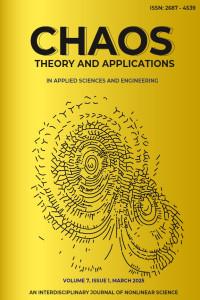
|
Nithin Nagaraj Universal Orbits: Unveiling the Connection between Chaotic Dynamics, Normal Numbers, and Neurochaos Learning. https://dergipark.org.tr/en/pub/chaos/issue/90440/1560943 Henry, A., Nagaraj, N., and Sundaravaradhan, R. (2025). Universal Orbits: Unveiling the Connection between Chaotic Dynamics, Normal Numbers, and Neurochaos Learning. Chaos Theory and Applications, 7(1), 61-69. This study explores the realm of chaotic dynamics, Neurochaos Learning (a brain-inspired machine learning paradigm) and Normal numbers, focusing on the introduction of a novel chaotic trajectory termed the Universal Orbit. The study investigates the characteristics and generation of universal orbits within two prominent chaotic maps: the Decimal Shift Map and the Gauss Map. It explores the set of points capable of forming such orbits, revealing connections with normal numbers and continued fractions. Points within the interval (0, 1) can produce universal orbits under specific conditions, highlighting the intricate relationship between machine learning, chaotic dynamics and number theory. While not all points forming universal orbits are normal numbers, the trajectory of a normal number may represent a universal orbit (under certain conditions). When employing the universal orbit for feature extraction in Neurochaos Learning, the firing time feature can be interpreted by establishing an upper bound and examining its trend. Future research aims to identify sets of points producing universal orbits under various chaotic maps, intending to enhance the performance of algorithms like the Neurochaos Learning algorithm. This study contributes to advancing our understanding of chaotic systems and their applications in artificial intelligence. |
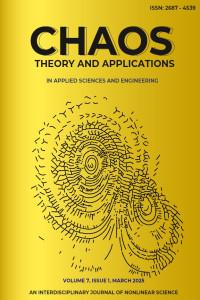
|
Nithin Nagaraj Random Heterogeneous Neurochaos Learning Architecture for Data Classification https://dergipark.org.tr/en/pub/chaos/issue/90440/1578830 Remya, Ajai A S and Nagaraj, Nithin (2025) Random Heterogeneous Neurochaos Learning Architecture for Data Classification. Chaos Theory and Applications, 7 (1). pp. 10-30. Inspired by the human brain's structure and function, Artificial Neural Networks (ANN) were developed for data classification. However, existing Neural Networks, including Deep Neural Networks, do not mimic the brain's rich structure. They lack key features such as randomness and neuron heterogeneity, which are inherently chaotic in their firing behavior. Neurochaos Learning (NL), a chaos-based neural network, recently employed one-dimensional chaotic maps like Generalized Lüroth Series (GLS) and Logistic map as neurons. For the first time, we propose a random heterogeneous extension of NL, where various chaotic neurons are randomly placed in the input layer, mimicking the randomness and heterogeneous nature of human brain networks. We evaluated the performance of the newly proposed Random Heterogeneous Neurochaos Learning (RHNL) architectures combined with traditional Machine Learning (ML) methods. On public datasets, RHNL outperformed both homogeneous NL and fixed heterogeneous NL architectures in nearly all classification tasks. RHNL achieved high F1 scores on the Wine dataset (1.0), Bank Note Authentication dataset (0.99), Breast Cancer Wisconsin dataset (0.99), and Free Spoken Digit Dataset (FSDD) (0.98). These RHNL results are among the best in the literature for these datasets. We investigated RHNL performance on image datasets, where it outperformed stand-alone ML classifiers. In low training sample regimes, RHNL was the best among stand-alone ML. Our architecture bridges the gap between existing ANN architectures and the human brain's chaotic, random, and heterogeneous properties. We foresee the development of several novel learning algorithms centered around Random Heterogeneous Neurochaos Learning in the coming days. |
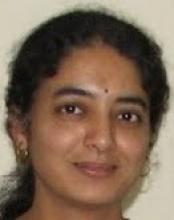
|
Janaki Balakrishnan Predicting climatic tipping points https://aip.scitation.org/doi/10.1063/5.0135266 Co-authored with Sunny, Eros M and Kurths, Jürgen. Chaos: An interdisciplinary Journal of Nonlinear Science, 33 (2) Increased levels of greenhouse gases in the atmosphere, especially carbon dioxide, are leading contributors to a significant increase in the global temperature, and the consequent global climatic changes are more noticeable in recent years than in the past. A persistent increased growth of such gases might lead to an irreversible transition or tipping of the Earth’s climatic system to a new dynamical state. A change of regimes in CO2 buildup being correlated to one in global climate patterns, predicting this tipping point becomes crucially important. We propose here an innovative conceptual model, which does just this. Using the idea of rate-induced bifurcations, we show that a sufficiently rapid change in the system parameters beyond a critical value tips the system over to a new dynamical state. Our model when applied to real-world data detects tipping points, enables calculation of tipping rates and predicts their future values, and identifies thresholds beyond which tipping occurs. The model well captures the growth in time of the total global atmospheric fossil-fuel CO2 concentrations, identifying regime shift changes through measurable parameters and enabling prediction of future trends based on past data. Our model shows two distinct routes to tipping. We predict that with the present trend of variation of atmospheric greenhouse gas concentrations, the Earth’s climatic system would move over to a new stable dynamical regime in the year 2022. We determine a limit of 10.62 GtC at the start of 2022 for global CO2 emissions in order to avoid this tipping. The Earth’s climate has seen many changes over the years, affecting the physical environment (be it terrestrial, marine, or the atmosphere). These major changes or regime shifts from one stable dynamical state of the physical environment to another, each of which may persist for several years, produce major shifts in natural ecosystems involving trophic structures, changes in composition, and abundance of species. The climatic system moves over to a new regime once it crosses a climatic tipping point—a threshold crossed irreversibly by the system’s dynamics. Anthropogenic influences brought about in the physical environment invariably contribute in a substantial way to climate change globally as the dynamics of the climatic system is governed by the coupling between the land, the atmosphere, and the oceans. An increase in levels of greenhouse gases in the atmosphere mainly caused by human activities, especially carbon dioxide, has been one of the important contributing factors leading to climate change in the last few decades. We present here a theoretical model that well captures the rate of increase of the total global concentrations of carbon dioxide, the major contributing greenhouse gas in the atmosphere. We then employ the concept of rate-induced bifurcations to demonstrate that it is possible to determine the climatic tipping points from our model. This way, we predict that the climatic system would relocate to a new stable state early in the year 2022. It has been widely accepted that tipping point mechanisms can be used to study climate change. In this paper, we shall introduce and apply a rate-induced tipping model to global fossil-fuel emissions data. Our model shows two distinct routes in which tipping can occur, and the parameters describing these can be calculated from data and are physically measurable. Through the application of this model, we identify crucial tipping points, which lead to climate change and quantify exact boundaries crossed that induce tipping. Control can be exercised over the parameters describing tipping, if desired, such that tipping can be prevented. The methods developed can further be applied to any growth curve that may have undergone rate-induced tipping. |

|
Janaki Balakrishnan, S N Biswas, A K Goyal, A K Soni co-authored Chiral Anomaly for Parafermions from Stochastic Quantization Phys.Rev.D 37,571 (1988). |

|
Janaki Balakrishnan, S N Biswas, S K Soni, A K Goyal co-authored The Axial Anomaly from the Equations of Motion of Stochastic Quantization Fizika 21 (4),425 (1989). |

|
Janaki Balakrishnan, S N Biswas, A K Goyal, S K Soni co-authored Stochastic Quantization of Parafermi Fields J.Math.Phys. 31,156 (1990). |

|
Janaki Balakrishnan, S N Biswas, A K Goyal, S K Soni co-authored Applications of the Stochastic Quantization Method Acta Physica Hungarica 67, 381 (1990). |

|
Janaki Balakrishnan, D J Toms co-authored Gauge-independent effective action for quantum electrodynamics in Euclidean de Sitter space Phys.Lett.B 269, 339 (1991) |

|
Janaki Balakrishnan, D J Toms co-authored Gauge-independent effective potential for minimally coupled quantum fields in curved space https://journals.aps.org/prd/abstract/10.1103/PhysRevD.46.4413 Phys.Rev.D 46, 4413 (1992). |

|
Janaki Balakrishnan, I G Moss co-authored Improved effective potential Phys.Rev.D 49,4113 (1994). |

|
Janaki Balakrishnan One-loop fnite temperature effective action for composite fields in curved space Int.J.Mod.Phys.A 10, 389 (1995). |

|
Janaki Balakrishnan, B Ashok co-authored Effective potential for phi^6 theory in three dimensional curved spacetime J.Phys.A 31, 3999 (1998). |

|
Janaki Balakrishnan Neural network learning dynamics in a path integral framework Eur.Phys.J.B 15,679 (2000). |

|
Janaki Balakrishnan, G R Nagabhushana co-authored On the applicability of Sato's equation to capacitative radio frequency sheaths J.Phys.D: Appl.Phys. (Rapid Communication) 33, L153-L157 (2000). |

|
Janaki Balakrishnan Spatial curvature effects on molecular transport by diffusion Phys.Rev.E 61, 4648 (2000). |

|
Janaki Balakrishnan Symmetry Scheme for Amino Acid Codons Phys.Rev.E 65, 021912 (2002). |

|
Janaki Balakrishnan Stochastic quantization of order two parafermi fields Eur.Phys.J.C 23, 389 (2002). |

|
Janaki Balakrishnan Self-tuning to the Hopf bifurcation in fluctuating systems J.Phys.A 38, 1627 (2005). |

|
Janaki Balakrishnan A geometric framework for phase synchronization in coupled noisy nonlinear systems Phys.Rev.E 73, 036206 (2006). |

|
Janaki Balakrishnan, B Ashok, N Malik co-authored Complete synchronization in coupled Type-I neurons Pramana: Journal of Physics 74, 189 (2010). |

|
Janaki Balakrishnan, B Ashok, N Malik co-authored Noise-induced synchronization in bidirectionally coupled Type-I neurons Eur. Phys. J. B 74, 177 (2010). |

|
Janaki Balakrishnan, B Ashok co-authored The role of Hopf bifurcation dynamics in sensory processes J. Theor. Biol. 265, 126 (2010). |

|
Janaki Balakrishnan, Sudharsana V Iyengar , Jürgen Kurths co-authored Impact of climate change on larch budmoth cyclic outbreaks https://www.nature.com/articles/srep27845 Scientific Reports (Nature Publishing Group) 6, 27845 (2016) |

|
Janaki Balakrishnan, Sudharsana V Iyengar , Jürgen Kurths co-authored Co-existence of periodic bursts and death of cycles in a population dynamics system http://scitation.aip.org/content/aip/journal/chaos/26/9/10.1063/1.4962633 Chaos 26, 093111(1) - 093111(15) (2016) |

|
Janaki Balakrishnan co-authored The q-deformed Tinkerbell map https://aip.scitation.org/doi/10.1063/1.5048798 Co-authored with Sudharsana V Iyengar. Chaos 28, 113102(1)-113102(12) (2018) |

|
Janaki Balakrishnan Professor and Head, Complex Systems Programme The role of dynamical instabilities & fluctuations in hearing https://link.springer.com/chapter/10.1007/978-1-4020-9143-8_15 In: SK Dana, PK Roy & J Kurths (Eds), Complex Dynamics in Physiological Systems: From Heart to Brain, Springer Book Series: Understanding Complex Systems, 2009, 239-254 (2009), Springer-Verlag, Berlin |

|
Janaki Balakrishnan, Sudharsana V Iyengar co-authored Professor and Head, Complex Systems Programme q-Deformations and the Dynamics of the Larch Bud-moth Population Cycles https://www.worldscientific.com/doi/10.1142/9789814612470_0008 In: Nature's longest threads: New Frontiers in the Mathematics & Physics of Information in Biology, Nature's longest threads: New Frontiers in the Mathematics & Physics of Information in Biology, Singapore: World Scientific Publishing Company, 65-80 (2014 |

|
Janaki Balakrishnan, B V Sreekantan co-edited Nature's longest threads: New Frontiers in the Mathematics & Physics of Information in Biology https://www.worldscientific.com/worldscibooks/10.1142/9204 Edited Volume, World Scientific Publishing Company, Singapore (2014) (ISBN-13 no.: 978-9814612463). |

|
Janaki Balakrishnan Professor and Head, Complex Systems Programme Instabilities in sensory processes https://www.worldscientific.com/doi/10.1142/9789814612470_0005 In: Nature's longest threads: New Frontiers in the Mathematics & Physics of Information in Biology, Singapore: World Scientific Publishing Company, 37-46 (2014) |

|
Janaki Balakrishnan, Thotreithem Hongray, B Ashok co-authored Effect of charge on the dynamics of an acoustically forced bubble https://iopscience.iop.org/article/10.1088/0951-7715/27/6/1157/meta#:~:text=The%20limiting%20values%20of%20the,amplitude%20of%20the%20driving%20press… Nonlinearity 27, 1157 (2014) |

|
Janaki Balakrishnan, B Ashok, Thotreithem Hongray co-authored Professor and Head, Complex Systems Programme Oscillatory dynamics of a charged microbubble under ultrasound https://link.springer.com/article/10.1007/s12043-014-0846-y Pramana: Journal of Physics 84, 517 (2015) |

|
Janaki Balakrishnan, Thotreithem Hongray, Syamal K. Dana co-authored Professor and Head, Complex Systems Programme Bursting behaviour in coupled Josephson junctions https://aip.scitation.org/doi/abs/10.1063/1.4936675 Chaos 25, 123104 (2015) |

|
Janaki Balakrishnan, Thotreithem Hongray co-authored Dynamics of bow-tie shaped bursting: forced pendulum with dynamic feedback https://aip.scitation.org/doi/10.1063/1.4971411 Chaos 26, 123107 (2016) |

|
Janaki Balakrishnan co-authored The charged bubble oscillator: dynamics and thresholds https://www.ias.ac.in/article/fulltext/conf/001/01/0109-0115 Co-authored with B Ashok, and Thotreithem Hongray. Indian Academy of Sciences Conference Series 1, 109-115 (2017) (from: Pramana: Journal of Physics) |

|
Janaki Balakrishnan, Sudharsana V Iyengar, Jürgen Kurths co-authored Missing cycles: effect of climate change on population dynamics https://www.researchgate.net/publication/347505138_Missing_cycles_Effect_of_climate_change_on_population_dynamics Indian Academy of Sciences Conference Series 1, 93-99 (2017) (from: Pramana: Journal of Physics) |
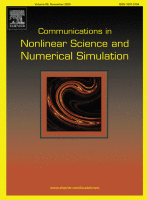
|
Janaki Balakrishnan co-authored Burst mechanisms and burst synchronization in a system of coupled type-I and type-II neurons https://www.sciencedirect.com/science/article/abs/pii/S1007570420302239?via%3Dihub= Co-authored with Sadhitro De. Commun Nonlinear Sci Numer Simulat 90, 105391 (2020) |

|
Janaki Balakrishnan co-authored The lengthening pendulum: adiabatic invariance and bursting solutions https://www.sciencedirect.com/science/article/pii/S2666032621000107?via%3Dihub= Co-authored with Subhayan Sahu, Shriya Pai, & Naren Manjunath. In: Physics Open 7, 100067 (2021) Coauthored with Subhayan Sahu, Shriya Pai, and Naren Manjunath |

|
Janaki Balakrishnan co-authored The flight of the hornbill: drift & diffusion in arboreal avian movement https://www.nature.com/articles/s41598-021-84074-3 Co-authored with Ankit Vikrant, Rohit Naniwadekar, & Aparajita Datta. Scientific Reports (Nature Publishing Group) 11, 5591 (2021) |

|
NIAS-RVITM Deep-Dive Course NIAS-RVITM 4-day Deep-Dive Course on Machine Learning Prof. Nithin Nagaraj., Complex Systems Programme, School of Natural Sciences and Engineering 6th Floor MCA Seminar hall 23-26 Apr 2025 |
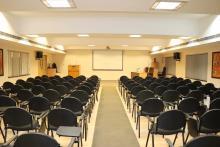
|
NIAS Public Lecture Fibonacci sequence and its extensions Prof TN Shorey Complex Systems Programme 25 August 2016 |
Courses:
Introduction to dynamical systems theory (course offered in the Indian Institute of Science, Bangalore).
